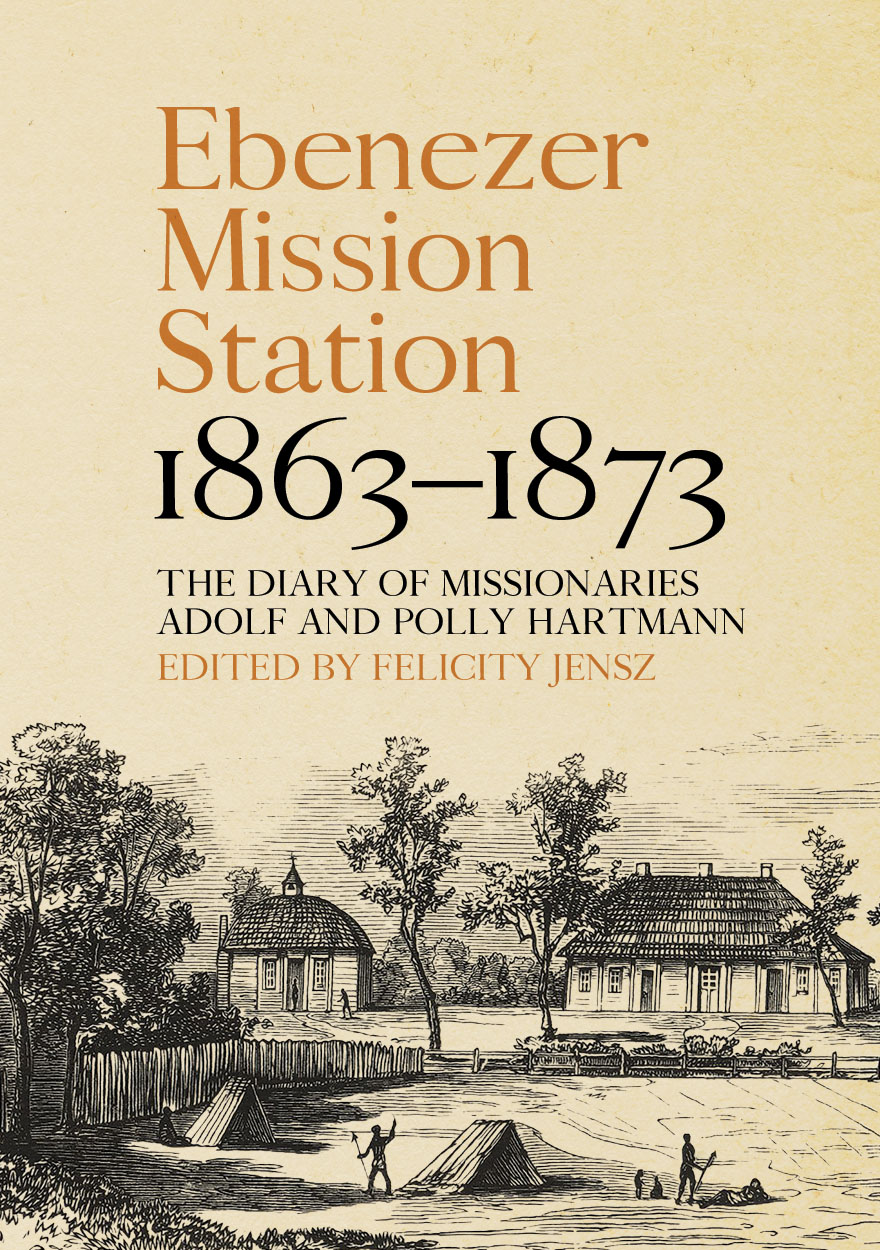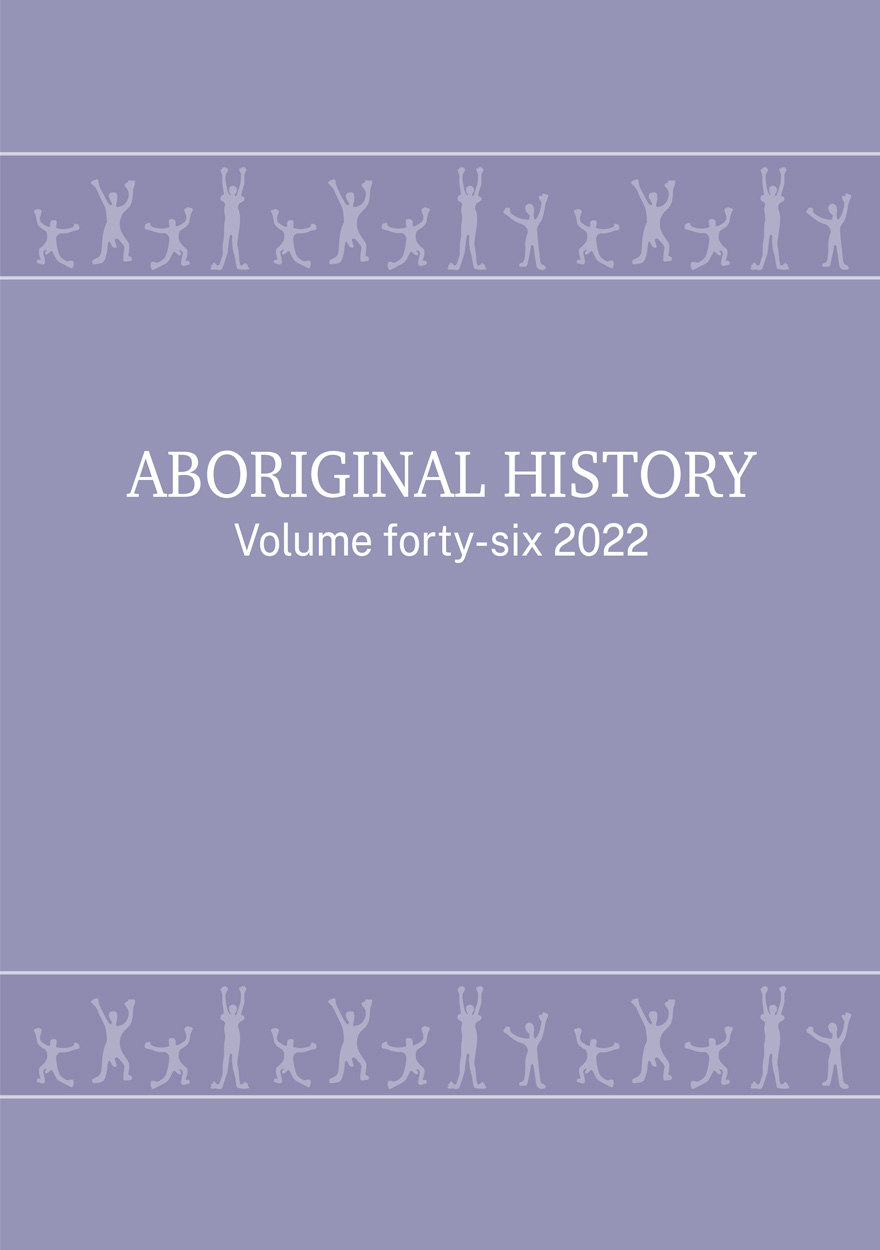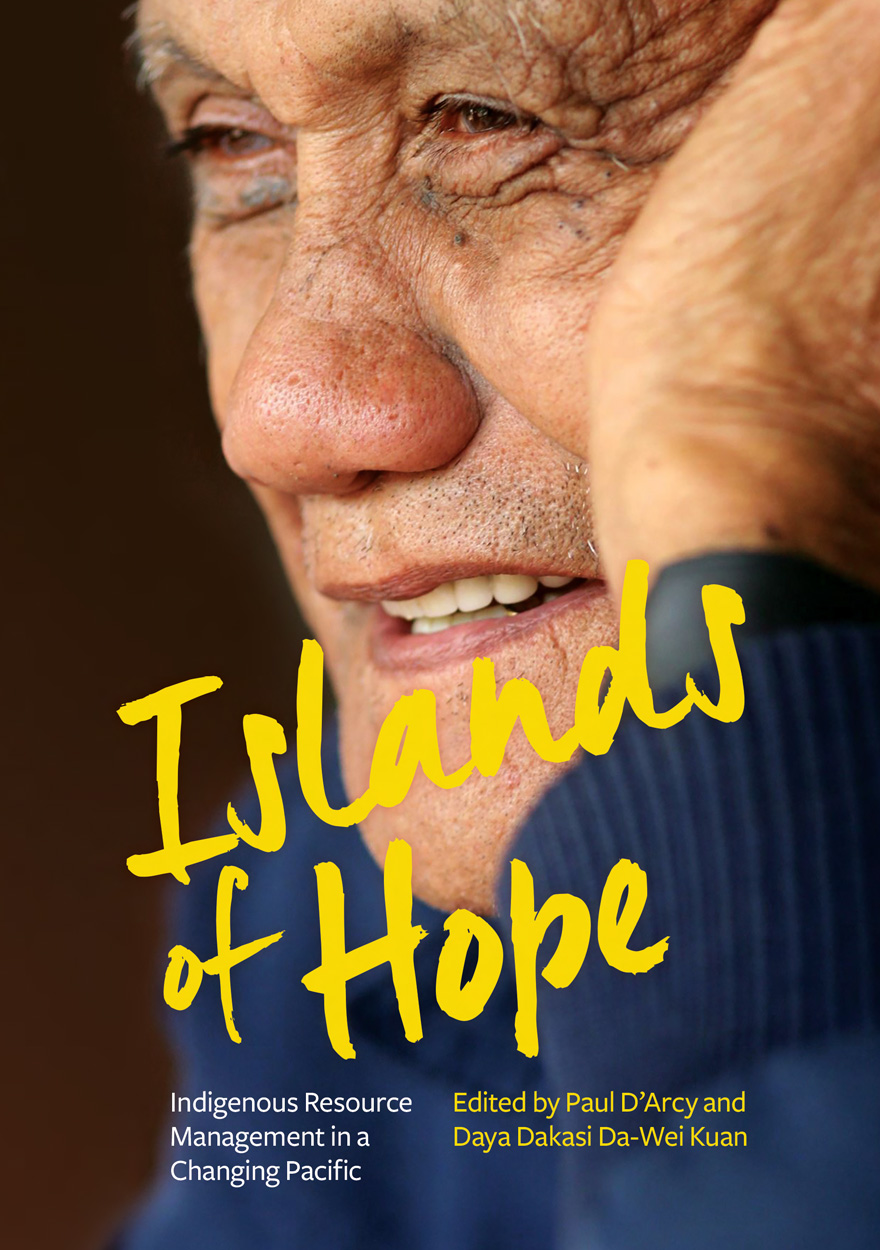Search titles
Displaying results 31 to 40 of 606.

The Compleat Busoni, Volume 1 »
Busoni and the piano: The works, the writings, and the recordings
Authored by: Larry Sitsky
Publication date: August 2023
VOLUME 1: Busoni and the piano: The works, the writings, and the recordings.
Larry Sitsky, professor emeritus at The Australian National University, is an internationally known composer, pianist, scholar, and teacher. His books are fundamental reference works on subjects such as Australian piano music, the 20th-century avant-garde, the piano music of Anton Rubinstein, the early 20th-century Russian avant-garde, and the classical reproducing piano roll.
The Compleat Busoni is the result of Sitsky’s lifelong focus on the composer Ferruccio Busoni. Over three volumes, Sitsky surveys Busoni’s vast output, provides an ending to the unfinished opera Dr. Faust, and presents definitive realisations of the Fantasia Contrappuntistica in two-piano and orchestral versions. New insights into Busoni’s style and aesthetics are an integral aspect of this work.

A Grammar of Nese »
Authored by: Lana Grelyn Takau
Publication date: August 2023
Nese is a dying Oceanic language spoken on the island of Malekula, in northern Vanuatu. This book, based on first-hand fieldwork data, and without adhering to any particular syntactic framework, presents a synchronic grammatical description of Nese’s phonology and syntax. Despite being on the verge of extinction, with fewer than 20 living speakers, the language displays intriguing properties—including but not exclusive to the cross-linguistically rare apicolabial phonemes, interesting vowel-raising patterns in some word classes, and a discontinuous negation relationship that is obligatorily expressed with the irrealis mood marker. This book will probably be the last work published on Nese.

International Review of Environmental History: Volume 9, Issue 1, 2023 »
Edited by: James Beattie
Publication date: July 2023
Inspired by recent scholarship on disaster history and situated within the broader field of environmental history, this special issue highlights structural factors that have exacerbated the effects of extreme weather and explores how states and societies have responded and adapted (or not) during and after disasters. The five case studies all focus on the Indian Ocean World (IOW), a macro-region stretching from eastern Africa to East Asia and Southeast Asia, and align chronologically with the so-called Anthropocene, the period during which the industrial Global North began to leave its indelible imprint on the world’s climatic systems. They build on a small but growing scholarship that looks at historical disasters and disaster responses within the IOW, arguing collectively for the application of historical methodologies in approaching the challenge of extreme weather now and in the future.

Chains »
Edited by: Linda Jaivin, Esther Sunkyung Klein, Annie Luman Ren
Publication date: July 2023
Speaking to the Twentieth National Congress of the Communist Party of China, in October 2022, President Xi Jinping reiterated his commitment to the ‘opening up’ policy of his predecessors — a policy that has burnished the party’s political legitimacy among its citizens by enabling four decades of economic development. Yet, for all the talk of openness, 2022 was a year of both literal and symbolic locks and chains — including, of course, the long, coercive, and often brutally enforced lockdowns of neighbourhoods and cities across China, most prominently Shanghai. Then there was a vlogger’s accidental discovery of the ‘woman in chains’, sparking an anguished, nationwide conversation about human trafficking. That was part of a broader (if frequently censored) conversation about gendered violence and women’s rights, in a year when women’s representation at the highest levels of power, which was already minimal, decreased even further. There was trouble with supply chains and, with the Fourth Taiwan Strait Crisis, in August, island chains as well. Despite the tensions in the Asia-Pacific, the People’s Republic of China expanded its diplomatic initiatives among Pacific island nations and celebrated fifty years of diplomatic links with both Japan and Australia. As the year drew to a close, a tragic fire in a locked-down apartment building in Ürümqi triggered a series of popular protests that brought an end to three years of ‘zero COVID’. The China Story Yearbook: Chains provides informed perspectives on these and other important stories from 2022.

Ebenezer Mission Station, 1863–1873 »
The Diary of Missionaries Adolf and Polly Hartmann
Edited by: Felicity Jensz
Publication date: July 2023
This book contains the annotated diary of Adolf and Mary (Polly) Hartmann, missionaries of the Moravian Church who worked at the Ebenezer mission station on Wotjobaluk country, in the north-west of the Colony of Victoria, Australia. The diary begins in 1863, as the Hartmanns are preparing to travel from Europe to take up their post, and ends in 1873, by which time they are working in Canada as missionaries to the Lenni Lenape people.
Recording the Hartmann’s eight years at the Ebenezer mission, the diary presents richly detailed insights into the daily interactions between Aboriginal people and their colonisers. The inhabitants of the mission are overwhelmingly described in the diary as agents in their lives, moving in and out of the missionaries’ sphere of influence, yet restricted at times by the boundaries of the mission. The diary reveals moments of laughter, shared grief, community, advocacy and reciprocal learning, alongside the mundane everyday chores of mission life.
Through the personal writings of a missionary couple, this diary brings to light the regular, routine and extraordinary events on a mission station in Australia in the third quarter of the nineteenth century—a period just prior to British high imperialism, and a period before increasingly restrictive legislation was enforced on Indigenous people in the Colony of Victoria.

Aboriginal History Journal: Volume 46 »
Edited by: Crystal McKinnon, Ben Silverstein
Publication date: July 2023
The articles in Volume 46 each take provocative and generative approaches to the challenge of historical truth-telling. Examining the public memory of massacres in Gippsland, Victoria, Aunty Doris Paton, Beth Marsden and Jessica Horton trace a history of contestation between, on the one hand, forms of frontier memorialisation articulated to secure colonial possession and, on the other, the sovereign counter-narratives of Gunai Kurnai communities. Heidi Norman and Anne Maree Payne describe Aboriginal campaigns to repatriate Ancestors’ stolen remains over the past fifty years, showing how these campaigns have proceeded along with and as part of nation-building movements towards land rights and self-determination. Their call for Aboriginal relationships with Ancestors to be represented in a National Resting Place aligns their research with these movements. We return to Gunai Kurnai Country in a piece authored by Rob Hudson and Shannon Woodcock, who show how the Krowathunkooloong Keeping Place has formed an important site and tool of community work towards cultural resurgence; the article itself demonstrates the value and importance of collaborative and co-designed research methods. The volume then includes a conversation between Laura McBride and Mariko Smith about their curation of the Australian Museum’s Unsettled exhibition, through which they responded to the 250th anniversary of Cook’s Endeavour voyage along Australia’s east coast by telling true stories that put Cook in his place.

Australian Journal of Biography and History: No. 7, 2023 »
Special Issue: Convict Lives
Publication date: June 2023
This special issue of the Australian Journal of Biography and History explores the lives of convicts transported to Australia and asks how they can be investigated through various forms of biography. Given the ever-increasing range of methodologies for researching convict lives, this issue offers a timely reflection on their varying strengths, limitations and functions as well as on the future of convict history research. Nine refereed articles and two research notes provide new insights into various aspects of convict lives and experiences, combined with broad discussions on methodology.
In their introductory article, Matthew Cunneen and Malcolm Allbrook delve into the history of convict biography and the ways previous historians have attempted to explore and understand such lives. To overcome the gaps and silences in the archives, they argue, historians of convict Australia should employ a range of methodologies that each have their own particular domains of enquiry. In her research note, Janet McCalman reflects on the historiographical discoveries that have been made possible by the digitising, indexing and linking of convict records. She calls for future researchers to continue the work behind large datasets so that one day a fully comprehensive database of convicts can be created. Adopting a more fine-grained approach, Jennifer Bird reconstructs in detail from the archives the penal life of the convict Robert Edward Knox. Her analysis of Knox demonstrates an alternative to big-data approaches for understanding convict agency.
With a similarly refined scope—though one that looks at the convict system from the outside in—Jennifer Brookes examines the struggles of Lydia Anne to join her transported husband, Laurence Hynes Halloran, in Australia. Brookes’s article suggests that historians might consider how contemporary understandings of convicts can be enhanced by studying the lives of non-convicts associated with transportation. Matthew Cunneen reconstructs the lives of three convicts to further inform the experiences of people of colour under transportation. He argues for collective biography as a way of bridging the methodological shortcomings of purely biographical and prosopographical approaches. In the first large-scale study of the subject, Patricia Downes examines the social and legal conditions that saw freely arrived British soldiers sentenced to transportation within the Australian colonies. Complicating old narratives of the soldiers as contaminated by the convicts around them, she explores how military crimes resulting in transportation were sometimes driven by desires for freedom from military life and to protest service conditions.
Christine Fernon reports in her research note on the progress made in the National Centre of Biography’s First Three Fleets and Their Families project, an ambitious intergenerational study of Australia’s early colonial history. The preliminary findings give a sense of the insights that the project will provide into how convict lives formed the fabric of Australian colonial history. Kristyn Harman and Anthony Ray explore the intergenerational effects of the convict system through the experiences of three convicts of colour. In analysing these lives, they contribute to our understanding of interracial marriage, family formation and recidivism in Van Diemen’s Land. Hamish Maxwell-Stewart, David Andrew Roberts and Mark McLean draw on a wealth of convict records to show the potential of using big data to analyse thousands of convict lives in parallel. Doing so would allow the individual to be contextualised within the greater population and would present opportunities for temporal and spatial analysis, thereby deepening understandings of British criminal management.
Visually illustrating the potential of big data in studies of convict protest and collective biography, Monika Schwarz examines collective resistance networks in female factories in Van Diemen’s Land. She draws together the stories of previously unconnected women and uncovers episodes of resistance. Returning convict history to its material origins, Richard Tuffin, Martin Gibbs, David Roe and Sylvana Szydzik draw on archaeological methods of digital technology to recontextualise convict lives. By mapping sites of convict labour and quantifying the outputs from them, the authors collectively argue that adopting multi-scalar and multidisciplinary approaches to studying convict environments can deeply enhance the histories of those who were involved with them. This issue deepens understandings of Australia’s convicts, the lives they led and the ways historians can best study them.

‘Order, Order!’ »
A Biographical Dictionary of Speakers, Deputy Speakers and Clerks of the Australian House of Representatives
Edited by: Stephen Wilks
Publication date: May 2023
‘Order, Order!’: A Biographical Dictionary of Speakers, Deputy Speakers and Clerks of the Australian House of Representatives shines a first-ever historical light on the remarkable men and women who have served in these national offices since Federation.
The Speakers include Frederick Holder, whose campaign to embed a Westminster-style Speakership died with him when he collapsed dramatically in the parliament; the much-loved Joan Child, Australia’s first female Speaker, whose struggles as a widow with five children fostered her commitment to social justice and made her, in the words of another Speaker, Anna Burke, ‘pretty fierce’; and Ian Sinclair, a warhorse of a parliamentarian who seemed to prove the poacher-turned-gamekeeper principle. The Deputy Speakers, a particularly eclectic assortment, include the strange and bleakly serious James Fowler, who once hopefully mailed a film synopsis to the American director Cecil B. DeMille and who ended his days warning of the perils of democracy. Amongst the Clerks are Frank Green, who, at the height of the Cold War, indiscreetly befriended members of the Communist Party, and the popular Jack Pettifer—a true child of parliament—who grew up in an apartment in the building.
This book includes analysis of what sorts of individuals typically filled these vital parliamentary positions, and the appearance of an Australian model of the Speakership based on pragmatic compromise. All three offices are typically more than just creatures of political parties—something that Australians should be prepared to defend against the remorseless encroachment of political partisanship.

Islands of Hope »
Indigenous Resource Management in a Changing Pacific
Edited by: Paul D’Arcy, Daya Dakasi Da-Wei Kuan
Publication date: May 2023
In the Pacific, as elsewhere, indigenous communities live with the consequences of environmental mismanagement and over-exploitation but rarely benefit from the short-term economic profits such actions may generate within the global system.
National and international policy frameworks ultimately rely on local community assent. Without effective local participation and partnership, these extremely imposed frameworks miss out on millennia of local observation and understanding and seldom deliver viable and sustained environmental, cultural and economic benefits at the local level.
This collection argues that environmental sustainability, indigenous political empowerment and economic viability will succeed only by taking account of distinct local contexts and cultures. In this regard, these Pacific indigenous case studies offer ‘islands of hope’ for all communities marginalised by increasingly intrusive—and increasingly rapid—technological changes and by global dietary, economic, political and military forces with whom they have no direct contact or influence.

Wehali: The Female Land »
Traditions of a Timorese Ritual Centre
Authored by: Tom Therik
Publication date: March 2023
Wehali defines itself as the ritual centre of the island of Timor. As a ritual centre, Wehali continues to be the residence of a figure of traditional authority on whom, in the 18th century, the Dutch conferred the title of Kaiser (Keizer) and to whom the Portuguese gave the title of Emperor (Imperador). At one time, Wehali was the centre of a network of tributary states, which both the Dutch and Portuguese regarded as paramount to the political organisation of the island. This book is a study of Wehali in its contemporary setting as it continues to maintain its rituals and traditions.
Significantly, Wehali is a ‘Female’ centre and its ‘Great Lord’ is considered to be a ‘Female’ lord. Whereas other Timorese societies are organised along male lines, in Wehali, all land, all property, all houses belong to women. Men are exchanged as husbands in marriage. Wehali is thus considered to be the ‘husband-giver’ to the surrounding realms on the island that look to its inner power as their source of life.



